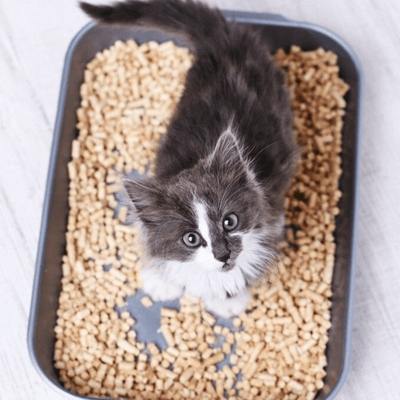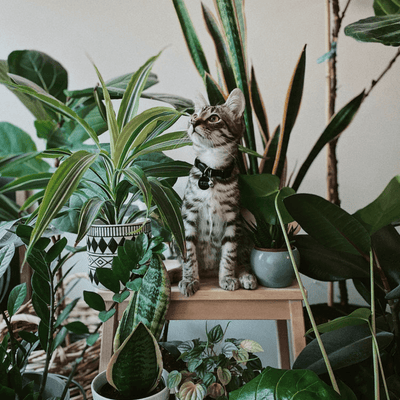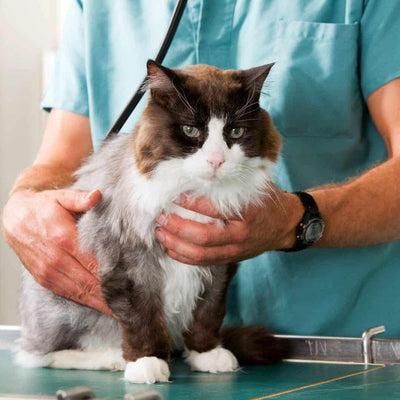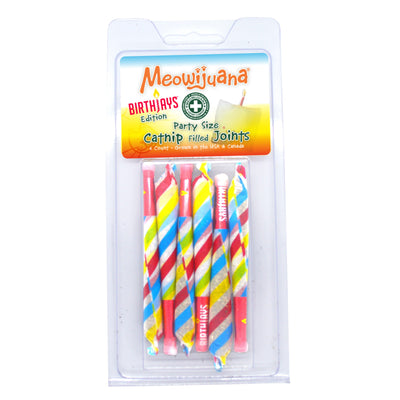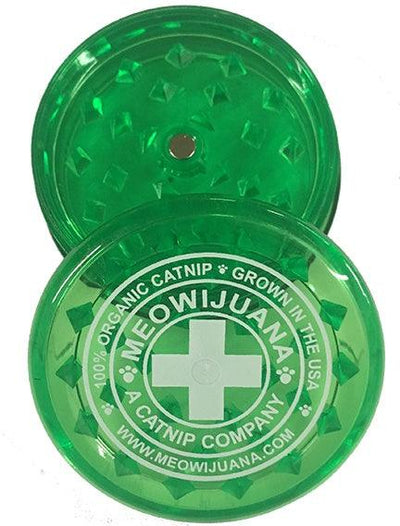Have you ever found yourself lying in bed at night unable to sleep because your cat has become possessed by some strange energy? If you’re the owner of an indoor cat, the answer to this question is probably yes!
Perhaps it happens once or twice a month—the cats start running around at 3am and won’t calm down until 5am. Even the best-behaved cat can sometimes get totally out of control when the sun goes down and it can be very distressing to those living with them. If you want to learn why cats go crazy at night and what you can do about it, then keep reading!
Cats are considered to be "crepuscular" (as opposed to nocturnal or diurnal). This term is used to describe animals that are most active at 2 peak times in the day: sunrise and sunset. A cat's hunting instincts are intrinsically connected with their crepuscular nature. They reserve their energy for these nighttime periods. Before cats were domesticated, they would have to be very active at these times of day, looking for, chasing, and catching their prey. Though house cats no longer have to hunt for their meals, their instincts encourage them to save their energy for early mornings and late evenings. Some crepuscular creatures — like cats — have slit-shaped retinas which allow them to see well in low light. In other words, at these 2 times of day, it's bright enough to see, but dark enough to decrease the likelihood of being caught and eaten.
Behaviors They Exhibit
This is not an exhaustive list, but it covers a few common behaviors observed in cats during these periods of heightened activity. These behaviors include:
- Darting across you or your furniture (aka ZOOMIES!)
- Biting at your toes while you sleep
- Attacking your ears while you sleep
- Walking across you while you sleep
- Crying or yowling loudly
- Knocking stuff over
- Scratching at closed doors
- Other parkour maneuvers
Reasons for Kitty Hijinks
Besides the fact that cats just naturally have more energy at these times, there could be other reasons why your cat is acting crazy.
- Being home alone and sleeping all day: If your cat is left home alone all day, there’s a good chance that they will spend most of the day sleeping. All that rest can lead to lots of energy later in the evening. On top of this, your cat may be bored from being alone and is searching for attention or interaction.
- Hunger: It's also possible that your cat is hungry and is trying to wake you up to feed him or her.
- Old age: As cats age, changes in sleeping patterns are common. Older cats may be active at night due to health issues caused by aging.
- Health conditions: There are certain health conditions that can cause cats to be hyperactive, vocal, or needy at night such as pain, anxiety, hyperthyroidism, dementia, or sleep disturbances.
So what can you do??
There are several things you can try to help curb your kitty’s energy at night. First, keep your cat awake in the evening. Training or playing with your cat an hour or two before bedtime is a great way to expend pent up energy. Make sure they are engaged and get their heart rate up! If you’re too busy to play with your cat in the evening, try our new Jump N’ Jamb toys for a hands-free way to keep them entertained and active!
Just like humans, cats get bored. Playing with the same toys every day gets old. Buying new toys or rotating your cat’s current toys is a great way to keep them interested in playing. Swap your cat’s toys out about once a week or try stuffing them with our different catnip blends!
Another idea is changing your cat’s feeding schedule to later in the evening. Cats often fall asleep after they eat. After a hardcore play session and a tasty meal, most kitties will curl up and go to sleep. But don’t feed your cat in the middle of the night! This could cause your cat to stay awake for food, which is what we’re trying to avoid.
It’s important to remember that night time activity is natural for your cat and to not punish or yell at them. Not only can this cause fear and aggression, but any interaction will reinforce the behavior. Don’t pet, feed, or respond to the cat. While you may think this will help, it’s best to ignore the behavior as much as possible. Your cat will eventually stop if they aren’t getting the attention they want.


